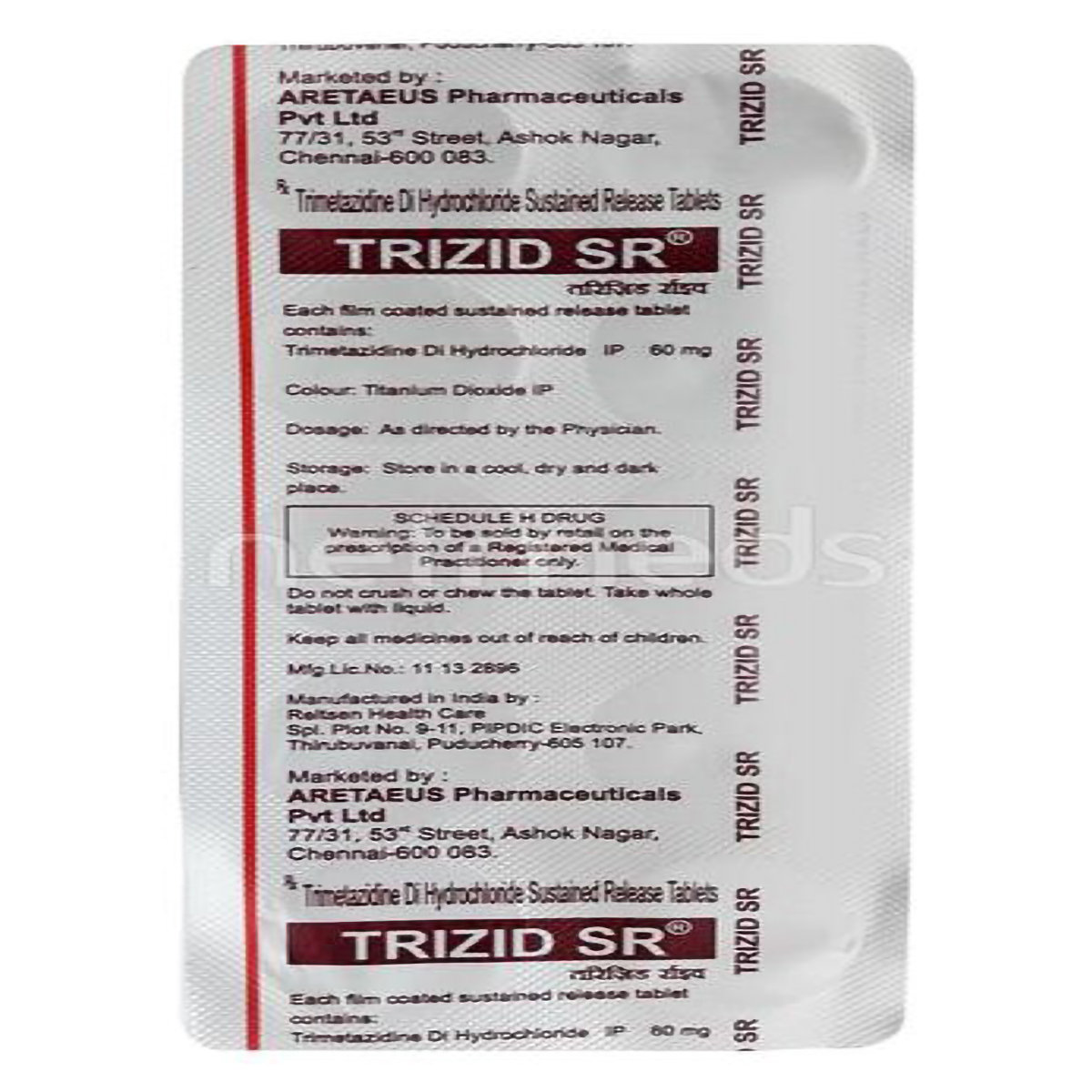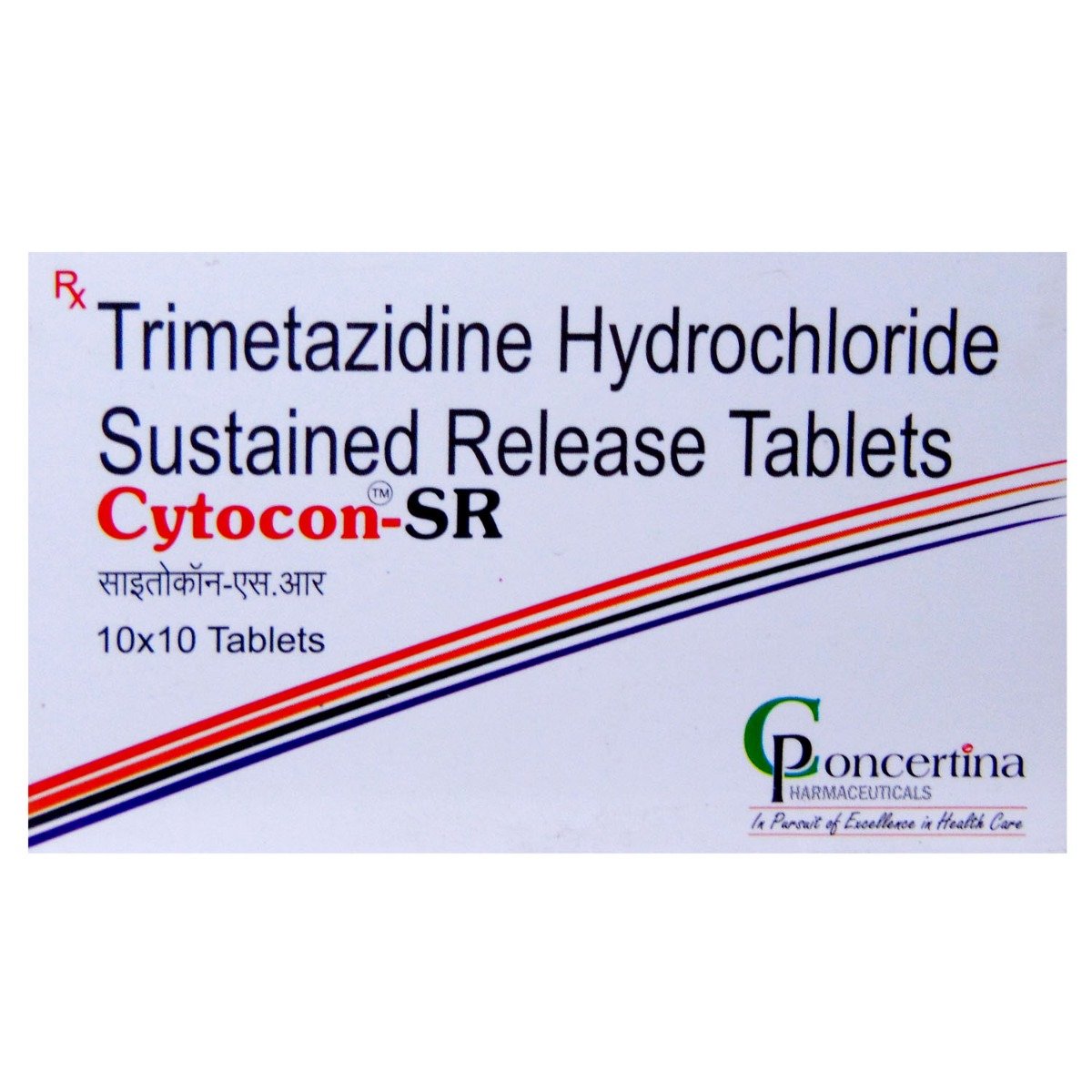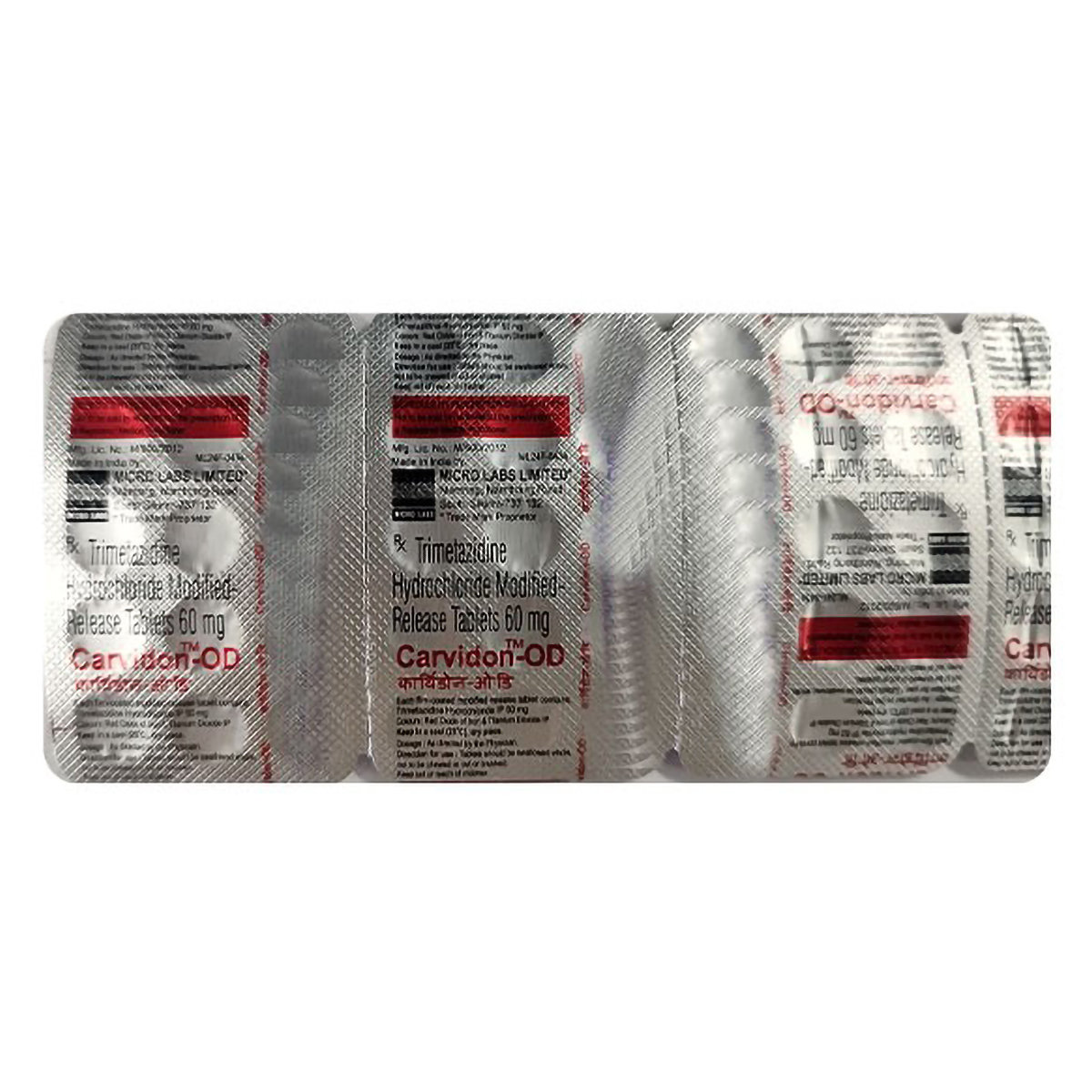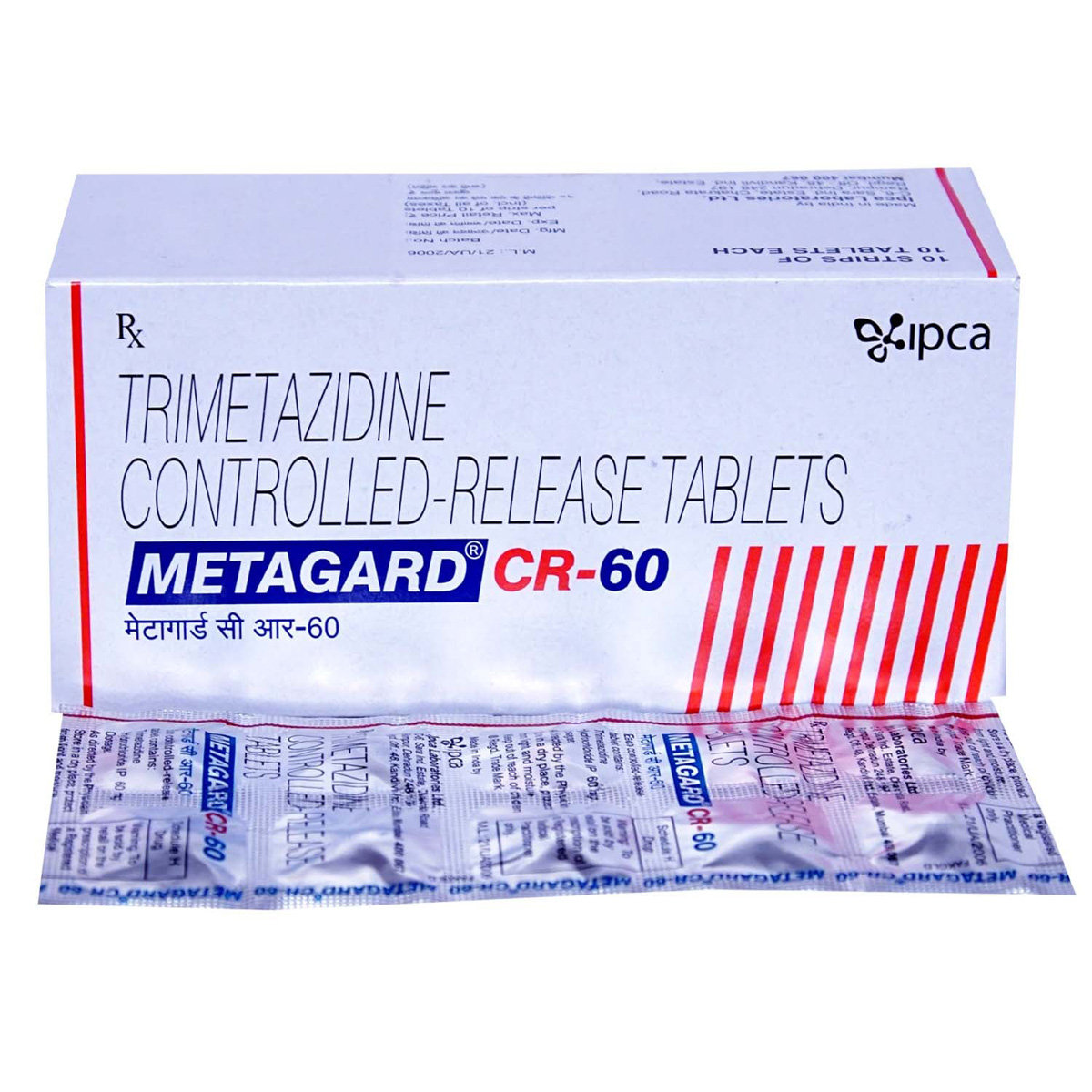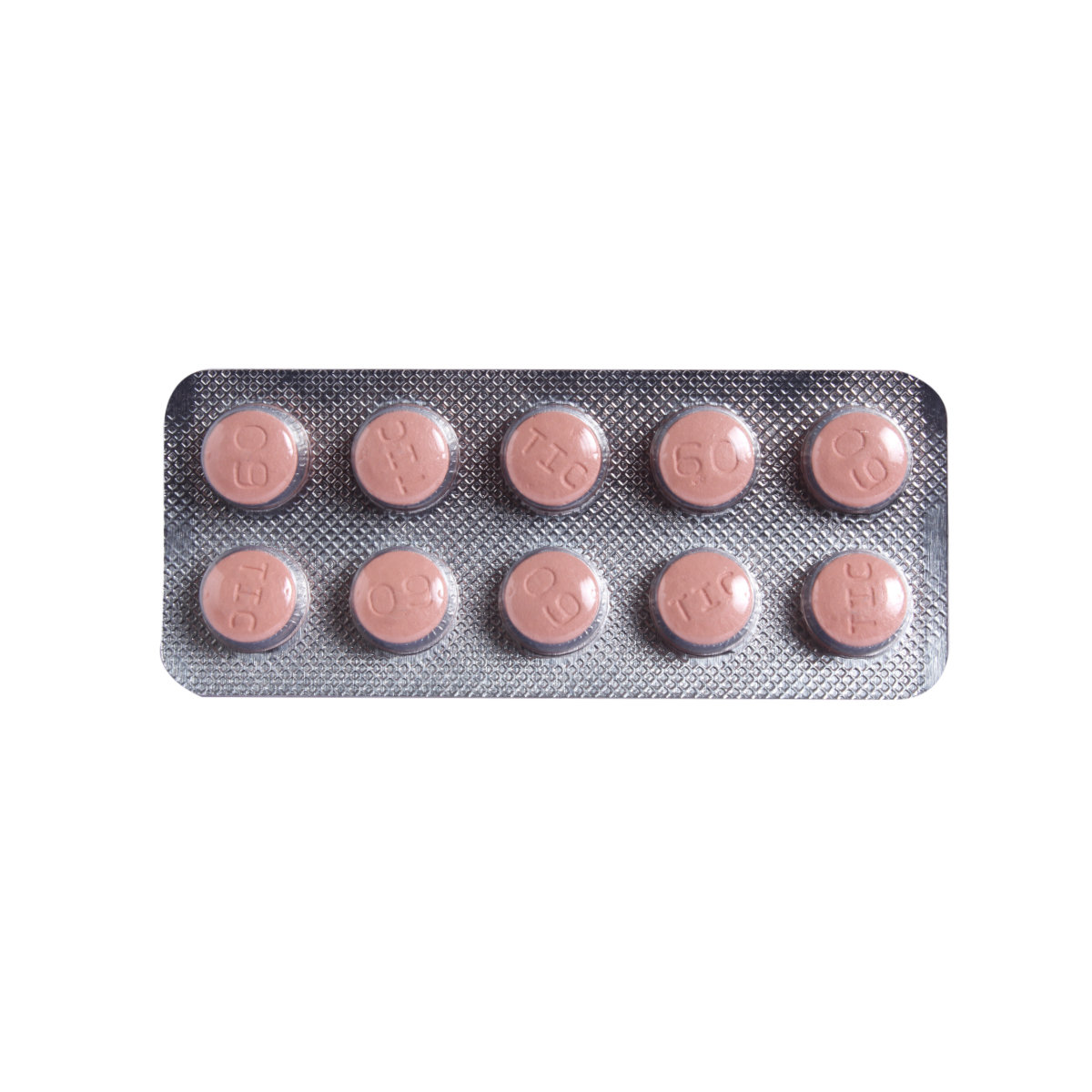3-Kat 60 Tablet 10's
MRP ₹118
(Inclusive of all Taxes)
₹17.7 Cashback (15%)
Provide Delivery Location
Online payment accepted
 Prescription drug
Prescription drugWhats That
Composition :
Manufacturer/Marketer :
Consume Type :
Expires on or after :
Return Policy :
About 3-Kat 60 Tablet
3-Kat 60 Tablet is a heart problem-related medication containing Trimetazidine (anti-anginal drug), which is used to prevent an attack of angina pectoris (chest pain caused by coronary disease) in adult patients in combination with other medication. Angina is chest pain which happens when enough supply of oxygen does not reach the heart. The insufficient supply can be due to obstructing the pathway or narrowing the blood vessels.
3-Kat 60 Tablet contains Trimetazidine, which is a 'metabolic agent.' It affects metabolism (the process by which substances are broken down in the body). 3-Kat 60 Tablet decreases the body's oxygen requirement by shifting metabolism from fats to glucose, increasing the rate at which glucose is broken down. Hence, the heart works efficiently and requires less oxygen. In addition to this, it is also used in treating vertigo (a spinning sensation), tinnitus (ringing sensation in the ears), and to treat reduced vision and visual field disturbances (unclear or disturbed vision).
3-Kat 60 Tablet can be taken with or without food. Depending on your disease's condition, it should be taken in dose and duration as advised by your doctor. Also, regularly visit a doctor as the dose may vary from time to time. This medicine's common side effects include dizziness, headache, diarrhoea, vomiting, indigestion, abdominal pain, and feeling sick. Everyone doesn't need to experience the above side effects. In case of any discomfort, speak with a doctor.
3-Kat 60 Tablet should not be stopped suddenly as it may worsen your condition. Also, some lifestyle changes like regular exercise, eating well, smoking cessation, and reducing alcohol can improve the heart's health. People who have a liver or kidney disease, are pregnant or breastfeeding should inform the doctor before starting 3-Kat 60 Tablet as a dose adjustment may be required.
Uses of 3-Kat 60 Tablet
Directions for Use
Key Benefits
3-Kat 60 Tablet contains Trimetazidine, which is a 'metabolic agent'. It affects metabolism (the process by which substances are broken down in the body). 3-Kat 60 Tablet decreases the body's oxygen requirement by shifting metabolism from fats to glucose, increasing the rate at which glucose is broken down. Hence, the heart works efficiently and requires less oxygen. In addition to this, it is also used in treating vertigo (a spinning sensation), tinnitus (ringing sensation in the ears), and to treat reduced vision and visual field disturbances (unclear or disturbed vision).
Storage
Drug Warnings
Do not take 3-Kat 60 Tablet if you are allergic to trimetazidine or any of the other ingredients. If you have severe kidney problems, are pregnant, or breast-feeding, inform your doctor before starting 3-Kat 60 Tablet . 3-Kat 60 Tablet may worsen symptoms of Parkinson's disease (brain disease affecting movement), so your doctor must know if you have Parkinson's disease and are taking 3-Kat 60 Tablet . Try to adopt a Mediterranean-style diet rich in olive oil, fruits, vegetables, nuts, whole grains, fish, and low red meat and most dairy. American Heart Association recommends sodium chloride intake (table salt) should not exceed more than 2,300 mg per day as part of a healthy eating pattern. As lesser the heart load, the more efficiently it can pump blood and restore to normal functioning. 3-Kat 60 Tablet prevents a new attack of angina but does not prevents an acute attack. Drug Interactions (Drug, Food & Disease).
Diet & Lifestyle Advise
- Eat a healthy diet rich in soluble fibre like beans, legumes, whole grain, flax, apples, and citrus fruits.
- Try to adopt a Mediterranean-style diet rich in olive oil, fruits, vegetables, nuts, whole grains, fish, and low in red meat and most dairy.
- Try to give priority to more fruits and veggies in your daily meal as these contain antioxidants.
- Minimize the intake of added sugar. The American Heart Association (ADA) recommends, one should not eat more than 100 calories (25 grams) of added sugar for women and children, and no more than 150 calories (37.5 grams) for men every day.
- American Heart Association recommends sodium chloride intake (table salt) should not exceed more than 2,300 mg per day as part of a healthy eating pattern.
- As a precautionary measure, do not consume alcohol and quit smoking.
Side Effects of 3-Kat 60 Tablet
- Dizziness
- Headache
- Diarrhoea
- Vomiting
- Indigestion
- Abdominal pain
- Feeling sick
Habit Forming
Therapeutic Class
All Substitutes & Brand Comparisons
RX
Out of StockCarzid 60 mg SR Tablet 10's
Diligence Pharmaceuticals
₹82
(₹7.38 per unit)
30% CHEAPERRX
Out of StockKADRIN 60MG TABLET SR
₹90
(₹8.1 per unit)
23% CHEAPERRX
Out of StockTAZ SR 60MG TABLET
Mano Pharma
₹91
(₹8.19 per unit)
22% CHEAPER
FAQs
Drug-Drug Interactions Checker List
- FLUOXETINE
- LITHIUM
- LEVODOPA
- CARBAMAZEPINE
- BUSPIRONE
- RIFAMPICIN
Special Advise
Disease/Condition Glossary
Angina Pectoris: Angina is chest pain which happens when enough supply of oxygen does not reach the heart. This can be due to obstruction in the pathway or narrowing of the blood vessels. Patients with angina often explain the chest pain as squeezing, tightening, or pressure in the chest. Other symptoms can be dizziness, sweating, heartburn, and difficulty breathing.

Have a query?
Alcohol
Safe if prescribed
3-Kat 60 Tablet may cause dizziness when alcohol is taken.
Pregnancy
Consult your doctor
Only consume 3-Kat 60 Tablet if a doctor prescribes you.
Breast Feeding
Consult your doctor
Safe if prescribed
Driving
Safe if prescribed
Drive with caution, 3-Kat 60 Tablet usually causes blurry vision and may affect driving ability.
Liver
Consult your doctor
3-Kat 60 Tablet to be taken with caution, especially if you have a history of liver diseases/conditions. The dose may have to be adjusted by your doctor.
Kidney
Consult your doctor
3-Kat 60 Tablet to be taken with caution, especially if you have a history of kidney diseases/conditions. The dose may have to be adjusted by your doctor.
Children
Safe if prescribed
Generally, 3-Kat 60 Tablet is not recommended for children below 18 years of age without a doctor's consent. In case it has to be given, then the dose has to be adjusted and recommended by a child specialist only.
Recommended for a 30-day course: 4 Strips





